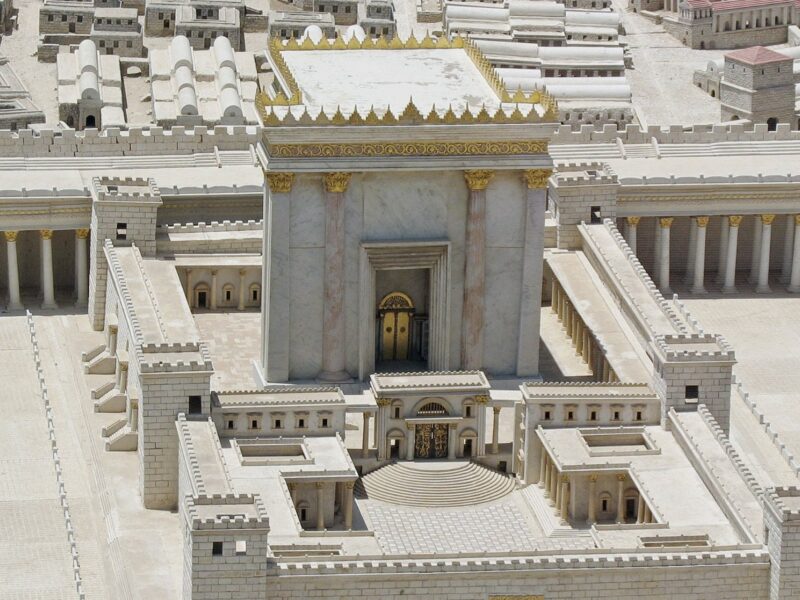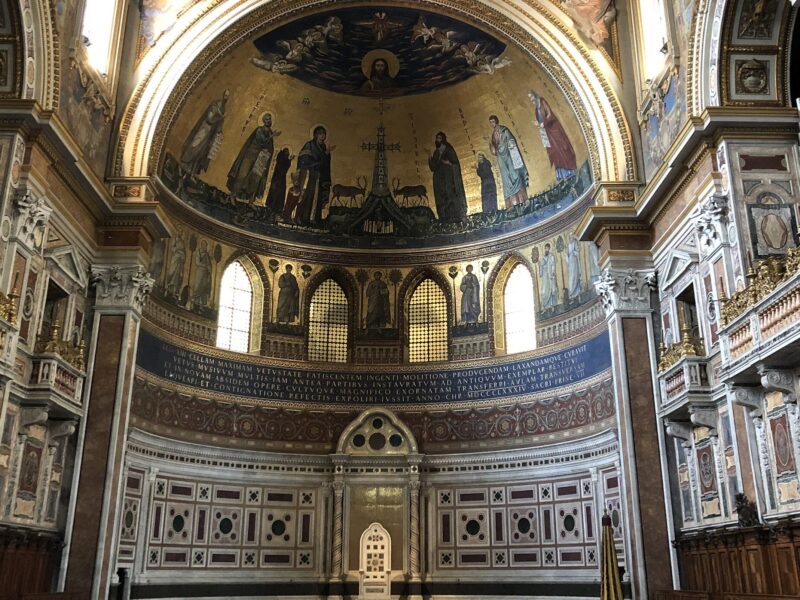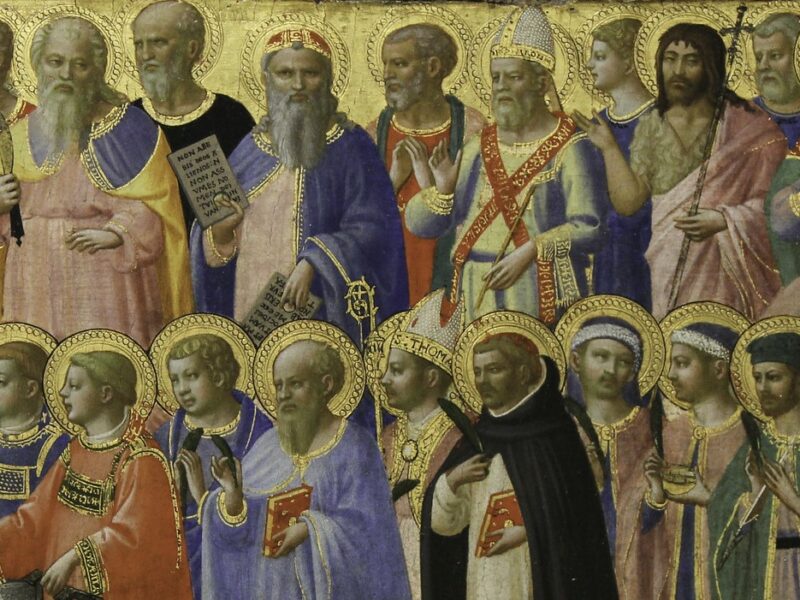
The Narrow Gate
Twenty-First Sunday of the Year. Fr Aidan Nichols ponders on the number of those who will be saved.
Today’s Gospel of the ‘narrow door’ raises some difficult issues concerning grace, election, predestination and the number of the saved – especially the last question, with which the Gospel opens.
Jesus is on his way to Jerusalem. For the evangelist Luke, Jesus only made one journey to Jerusalem truly worth recording, and that was in the year of his death, the last Passovertide he was to spend on earth, the moment of decisive confrontation with the religious and political authorities, a confrontation that was to be the instrument of the redemption itself. When St Luke speaks of the Lord as ‘going up’ to Jerusalem, he is looking ahead to the definitive ‘going up’ of the Ascension when Christ will through his Passion and Death enter on his reign as Lord of history. This is the context where someone asks him, ‘Lord, will those who are saved be few?’ No doubt the question was not far from the hearts, if not the minds, of all the disciples. Short of a moral miracle, the total of those actually laying hold on the salvation Jesus was offering them must surely have seemed very few indeed.
Jesus does not give the questioner a direct answer. Instead he warns him to see to it that he is among them and to do so without delay, since the period when he can do so is finite. Eventually, the householder will rise up and shut the door. Then while many will strive to enter they will not be able to. Having been an interested onlooker in Jesus’ circle will not suffice. ‘We ate and drank in your presence, and you taught in our streets.’ But the householder will say to them, ‘I do not know you’.
In the place of those Jews who had the experience of the Messiah but missed the meaning, so Jesus now predicts, a whole host of Gentiles will flood in to the Kingdom of God, from all directions.
Before the dialogue ends, however, Jesus adds a subtle rider. ‘Some who are last will be first, and some who were first will be last.’ Some of those apparently on the way to damnation and some of those apparently on the way to salvation will be found in the other camp from the one we might expect.
This Gospel, among others, has been pondered by members of the Church in later generations for any light it can throw on the wider pattern of salvation, not just at one point in the historic ministry but as it affects mankind at large. As to that wider pattern, three fundamental possibilities have been canvassed. Comparatively few people will be saved. Comparatively many people will be saved. Absolutely everybody will be saved.
The last option is of course the hardest to square with this Gospel and indeed with the teaching of Jesus at large. The Church indeed does not allow universalism to be proposed as public doctrine. Arguably, however, she permits us to hope it may be true: possibly all human beings will heed the warnings of the God-man in the end, in some moment contained within the experience of death.
The middle possibility is that very many will be saved. But why does Jesus call the gate of heaven a narrow door if not to underline the fewness of those who can squeeze through? We should note, however, that while a narrow door slows down entry it does not of itself prevent it. Entry may be exceedingly slow, as the doctrine of Purgatory suggests.
The remaining possibility, that few will be saved, though repugnant to much modern Christian sensibility has been sustained by some of the greatest of the Church’s doctors. We certainly cannot rule it out as an interpretation of today’s Gospel, though we can notice how uneasily it sits with the conviction the Easter Lord and his Spirit bequeathed to the early Church, a conviction summed up in the words, ‘grace abounding’: the love and mercy of God outstripping all human estimates of possible reconciliation. It cannot be accidental, surely, that the New Testament ends with the book of the Apocalypse where we are shown in the heavenly City a multitude whom none can number, washed in the blood of the Lamb.
Readings: Isaiah 66:18-21 | Hebrews 12:5-7,11-13 | Luke 13:22-30



John Matthew
Thank you Father Aiden for a very clear easily understood analysis of the possibilities which give all alive hope that while we have life we can improve our chances of getting through the narrow door but also help us to understand that our friends and relatives who have died might be there waiting for us.